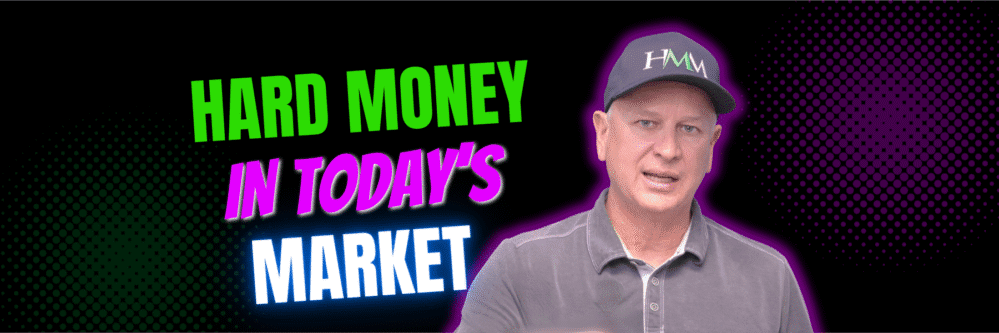Are Hard Money Loans Still Worth It in 2025?
/in BlogToday we are going to answer the question, “are hard money loans still worth it in 2025?” Let’s get back to the basics. What is a hard money loan, and why are investors still using it in 2025? Over the past few years, new lenders and Wall Street money have entered the space, creating some confusion. But true hard money lending is still here—and it continues to be one of the most powerful tools for real estate investors who need speed and flexibility.
Fast Alternative to Banks
Banks can feel like a slow-moving ship. Yes, they’ll get you there, but it can take 15 to 45 days to close a loan. Hard money loans, on the other hand, move fast, like a speedboat.
Because they’re asset-based, hard money lenders focus on the property more than your personal income or credit score. That’s what makes them so appealing. You can close quickly, often in just a few days, and grab good deals before anyone else.
Example:
One investor needed to close in two days. The property had title work and insurance ready. While another buyer waited 30 days for their bank loan, this investor closed fast and won the deal. That’s the power of hard money.
What Properties Qualify?
Hard money lenders focus on real estate that makes business sense. That means:
-
Fix and flips
-
Fix and rentals (like BRRRR properties)
-
Commercial properties
-
Non-owner-occupied real estate
If the deal makes sense and the asset protects the lender, it usually qualifies. These loans are not for primary homes or owner-occupied properties.
How Fast Can You Close?
Speed is one of the biggest advantages. Once the title and insurance are ready, many hard money loans close within a couple of days. Because investors often compete with cash buyers, that speed can make all the difference.
What Do Hard Money Loans Cost?
Hard money isn’t free, but it’s fast and flexible. Here’s what you can expect:
-
Rates: 10% to 14% (simple interest)
-
Points: 1 to 3% of the loan amount
-
Fees: Usually small, such as legal or doc fees ($500–$1,500)
You should never pay application or draw fees on a true hard money loan.
Repayment Terms
These are short-term bridge loans, typically lasting 6 to 18 months. Most don’t have prepayment penalties. So, if you pay it off in three months instead of six, you won’t get hit with extra fees. That flexibility gives you room to adjust your strategy and refinance when the time is right.
Does Credit Matter?
Yes and no. Hard money lenders don’t care about your credit score, but they do care about your credit history. They want to see that you pay your lenders on time. A quick background check will also show if you have liens or judgments that could cause issues at closing.
Think of it this way: credit scores don’t matter, but credit habits do.
How Much Can You Borrow?
That depends on the lender. Some use Loan-to-Value (LTV), while others use After Repair Value (ARV).
LTV lenders base the loan on what the property is worth today. ARV lenders look at what the property will be worth after improvements. Because of that, ARV lenders usually lend more and often cover part, or even all, of your rehab costs.
Example:
One investor bought a property for $155,000 and planned a $50,000 rehab. The ARV was $300,000. The lender covered 100% of the purchase and rehab costs. The investor only needed to cover closing costs. That’s the kind of leverage ARV lending makes possible.
How Do Draws Work?
Most lenders give a small amount upfront—usually 10% to 20% of the rehab budget, to get started. After that, funds are released in draws as the project moves forward.
To get a draw, you’ll submit receipts and photos showing completed work. Many lenders now use virtual inspections that take only 5–10 minutes. Once approved, funds are released within a couple of days.
Example:
An investor received $15,000 upfront for demo work. After submitting photos and invoices, a five-minute virtual inspection confirmed progress. The draw was funded within 48 hours. That’s how fast modern hard money lending works.
Red Flags to Watch For
Be cautious of anyone charging application fees or upfront money just to “see if you qualify.” That’s a big red flag. Most reputable lenders don’t charge these fees.
If a lender wants money before reviewing your project, walk away. Chances are, you’re paying for something you’ll never get.
The Application Process
Getting approved for hard money usually happens in two stages:
-
You, the borrower – This includes a background and credit review, plus proof of funds for your portion of the project.
-
The property or deal – Lenders look at your scope of work, exit strategy, and overall plan.
If both make sense, you’re good to go. Remember, hard money lenders want good deals—for both you and them.
Final Thoughts: Still Worth It in 2025?
Absolutely. Hard money loans remain one of the best tools for real estate investors who need speed, flexibility, and funding based on the property, not their personal finances.
They’re not for every situation, but when you find a great deal that needs quick action, hard money can help you win it.
Ready to Get Funded?
If you’re looking for a hard money loan, send us your deal and we’ll review it. Whether it’s your first project or your fiftieth, we’ll help you see if it makes sense, and get you funded fast.












Leave a Reply
Want to join the discussion?Feel free to contribute!